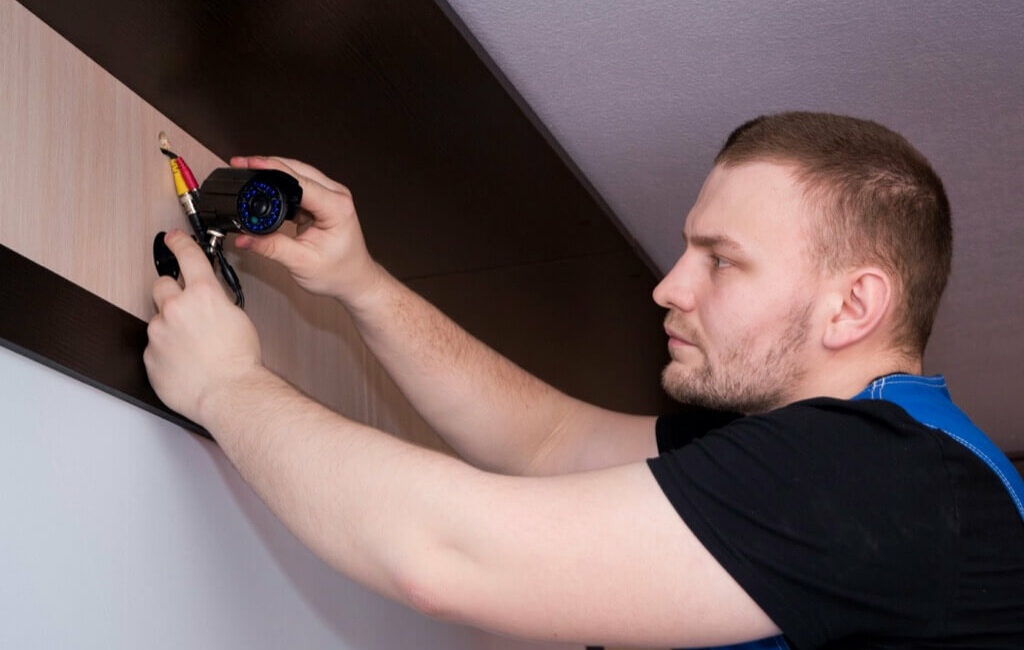- CCTV Setup Guide, Why You ShouldInstall It - February 6, 2024
- Did Fidel Castro Almost Join MLB? - November 28, 2023
- Chastity Belt Myth of the Middle Ages - November 27, 2023
The shadow of crime looms large over both public spaces and private homes, making security a paramount concern for many. As technology has advanced, so too have the methods by which we protect our properties and loved ones. Among the most effective tools in the modern security arsenal is the Closed-Circuit Television (CCTV) system. This technology has revolutionized how we monitor and deter criminal activities, offering both benefits and drawbacks that are worth exploring.
Here are five key statistics and insights that underscore the significance of CCTV systems for crime prevention and public safety:
- Studies have indicated that CCTV systems are most effective in car parks and public transport schemes, with car parks experiencing more than a 50% decrease in crime and public transport schemes seeing a 23% reduction. This contrasts with a more modest 7% decrease in city and town centers, highlighting the importance of strategic placement of CCTV cameras for maximum impact on crime reduction.
- While CCTV systems have proven to be effective in reducing crime in focal areas, they also face challenges such as crime displacement—where crime shifts from surveilled areas to others—and criminals adopting tactics to avoid surveillance. However, modern CCTV systems are evolving with algorithms capable of detecting suspicious behavior, addressing some of these challenges.
- The implementation of CCTV systems raises privacy concerns and necessitates careful consideration of privacy rights and legislation. Furthermore, effective cooperation with police forces is crucial to the success of these systems, but problems like low staff morale or corruption within police agencies can make this difficult. Establishing clear frameworks for collaboration and privacy protection is crucial.
- The sustainability of CCTV systems relies on consistent maintenance, upgrades, and budget provisions. A lack of maintenance or inadequate staffing can lead to a decline in public confidence in these systems. Therefore, city authorities are encouraged to ensure long-term planning and budgeting for the effective operation of CCTV systems.
- Many cities have invested significantly in CCTV systems, with Cape Town reporting access to over 1,500 cameras. These efforts are part of broader crime prevention strategies aimed at enhancing public safety. The integration of technology like ShotSpotter with CCTV in areas known for gang violence exemplifies innovative approaches to leveraging CCTV for crime detection and response.
The Advantages of CCTV Security
Deterrent to Criminal Activity
The presence of CCTV cameras acts as a significant deterrent to potential criminals. Whether installed in businesses, homes, or public areas, the knowledge that one’s actions are being recorded can discourage criminal behavior before it begins. This psychological barrier is a critical first line of defense in crime prevention.
Enhanced Monitoring and Flexibility
CCTV systems offer the ability to monitor activities in real time, both onsite and remotely. With advancements in technology, it is now possible to access live footage from virtually anywhere using internet-connected devices such as smartphones and laptops. This flexibility ensures that property owners can keep an eye on their investments, employees, or family members from any location, at any time.
Evidence Collection and Crime Resolution
In the event of a criminal incident, CCTV footage provides invaluable evidence that can help in identifying perpetrators and understanding the sequence of events. This evidence is crucial for law enforcement agencies in solving crimes and can also be used in court proceedings to secure convictions.
Cost-Effectiveness
Compared to the traditional method of employing security personnel to monitor premises, CCTV systems are a more cost-effective solution. Once installed, they require minimal maintenance and do not incur the ongoing costs associated with security staff, making them an economical choice for long-term surveillance.
The Drawbacks of CCTV Security
Privacy Concerns
One of the most contentious issues surrounding the use of CCTV systems is the potential privacy infringement. The omnipresence of cameras in public and private spaces can lead to feelings of being constantly watched, raising ethical and legal questions about the balance between security and individual privacy rights.
Dependence on Technology
While CCTV systems are highly effective, they are not infallible. Technical issues such as camera malfunctions, power outages, or internet connectivity problems can disrupt surveillance, leaving gaps in coverage. Moreover, sophisticated criminals may employ countermeasures to evade detection, highlighting the limitations of relying solely on technology for security.
Installation and Maintenance
The initial setup of a CCTV system can be complex, requiring a thorough understanding of both the technology and the specific security needs of the premises. Professional installation is often recommended to ensure optimal coverage and functionality. Additionally, ongoing maintenance is necessary to keep the system operational, which can incur additional costs over time.
Implementing a CCTV Security System
Choosing the Right System
The first step in adopting a CCTV security solution is selecting the appropriate system for your needs. This decision should be based on several factors, including the size of the area to be monitored, the required image quality, and the need for additional features such as night vision or motion detection. Consulting with security professionals can provide valuable insights into the most suitable options.
Installation Process
Professional installation is key to maximizing the effectiveness of a CCTV system. Experts can advise on the strategic placement of cameras to cover critical areas, ensure proper wiring and connectivity, and configure the system for remote access. DIY installation is possible for smaller, simpler systems, but for comprehensive coverage, professional services are recommended.
Maintenance and Upgrades
Regular maintenance is essential to keep a CCTV system functioning correctly. This includes cleaning camera lenses, checking for wiring issues, and ensuring that the recording equipment is operational. As technology advances, upgrading components such as cameras and storage devices can enhance system performance and capabilities.
CCTV security systems offer a robust solution to the challenges of modern security, providing both deterrence and detailed surveillance capabilities. While the benefits are significant, it’s important to consider the potential drawbacks and ethical implications. Proper selection, installation, and maintenance are crucial to leveraging the full potential of CCTV technology. In an era where safety and security are paramount, understanding the nuances of CCTV systems is essential for anyone looking to protect their premises effectively.

